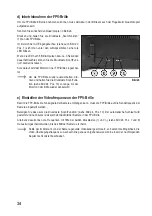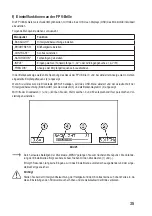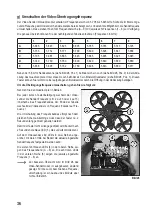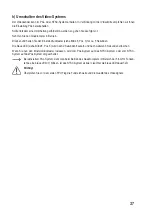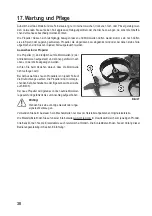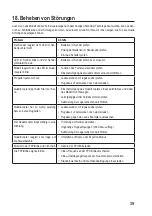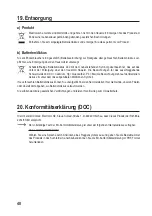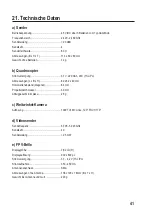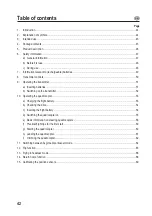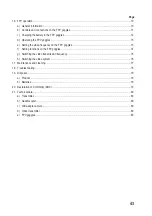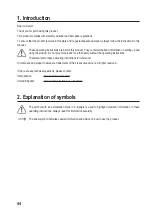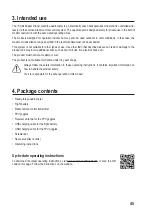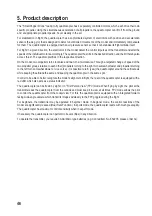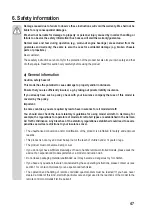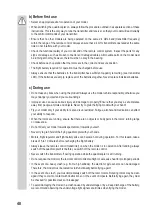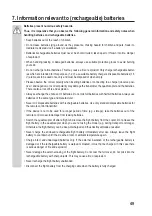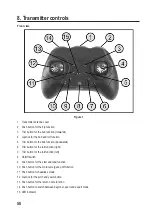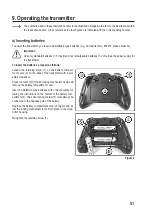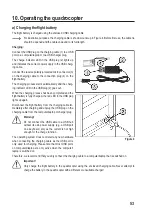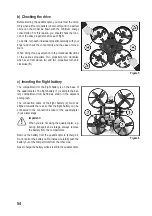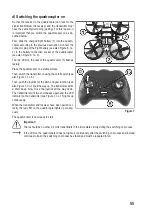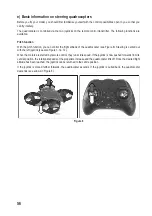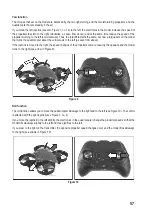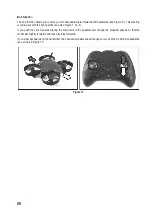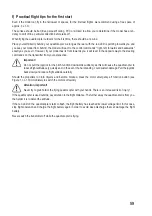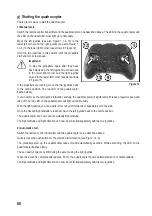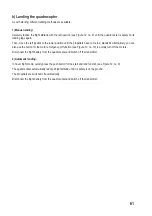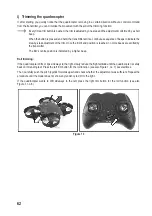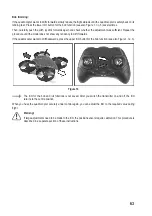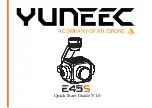
48
b)
Before first use
•
Select an appropriate site for operation of your model.
•
When switching the quadrocopter on, always follow the procedure outlined in a separate section of these
instructions. This is the only way to tune the transmitter and receiver, so that your model will react reliably
to the control commands of your transmitter.
•
Ensure that no other models are being operated on the same 2.4 GHz band (transmitter frequency)
within the range of the remote control. Always ensure that 2.4 GHz transmitters operated at the same
time do not interfere with your model.
•
Check the functional safety of your model and of the remote control system. Inspect the parts for any
signs of damage, such as broken connectors or damaged cables. All movable parts on the model must
be running smoothly; however, there must be no play in the bearing.
•
Check before each operation that the rotors are in the correct and secure position.
• The flight battery required for operation must be charged before use.
• Always ensure that the batteries in the transmitter have sufficient capacity remaining (see transmitter
LED). If the batteries are empty, replace all of the batteries together. Never replace individual batteries.
c) During use
•
Do not take any risks when using the product! Always use the model vehicle responsibly, otherwise you
may endanger yourself and your surroundings.
•
Improper use can cause serious injury and damage to property! Ensure that you stay a safe distance
away from people, animals and objects. Never try to grab the flying model with your hand!
•
Fly your model only if your ability to respond is unrestricted. Fatigue, alcohol and medication can affect
your ability to respond.
•
When the rotors are running, ensure that there are no objects or body parts in the rotors’ turning range
or intake area.
•
Do not direct your model towards spectators or towards yourself.
• Never try to grab hold of the flying quadrocopter with your hands.
• Motors, flight regulator and flight battery alike can become hot during operation. For this reason, take a
break of 5 to 10 minutes before recharging the flight battery.
•
Always leave the remote control (transmitter) on when the model is in operation. After landing, always
switch off the quadrocopter first before you switch off the remote control.
•
Never switch the transmitter off during operation while the quadrocopter is still running.
•
Do not expose the model or the remote control to direct sunlight or excessive heat for prolonged periods.
•
In the event of a heavy crash (e.g. from a high altitude), the electronic gyro sensors can be damaged.
Therefore, the model must be tested for full functionality before flying again!
•
In the event of a crash, you must immediately switch off the rotor motors. Rotating rotors may be dam-
aged if they come into contact with obstructions or in the event of impacts. Before flying again, they must
be checked for possible cracks or breakages!
•
To avoid damaging the model in a crash caused by undervoltage or by a deep discharge of the battery,
we recommend observing the undervoltage light signals at all times when flying the model.

